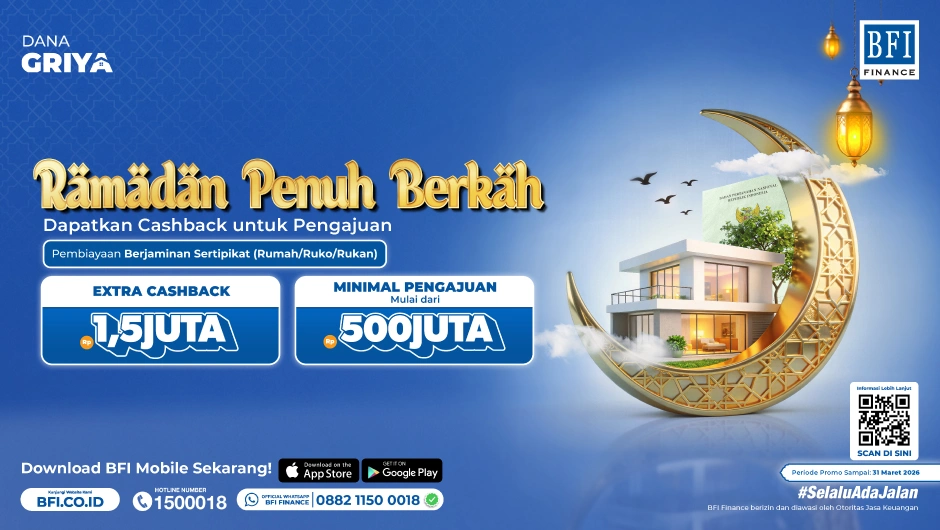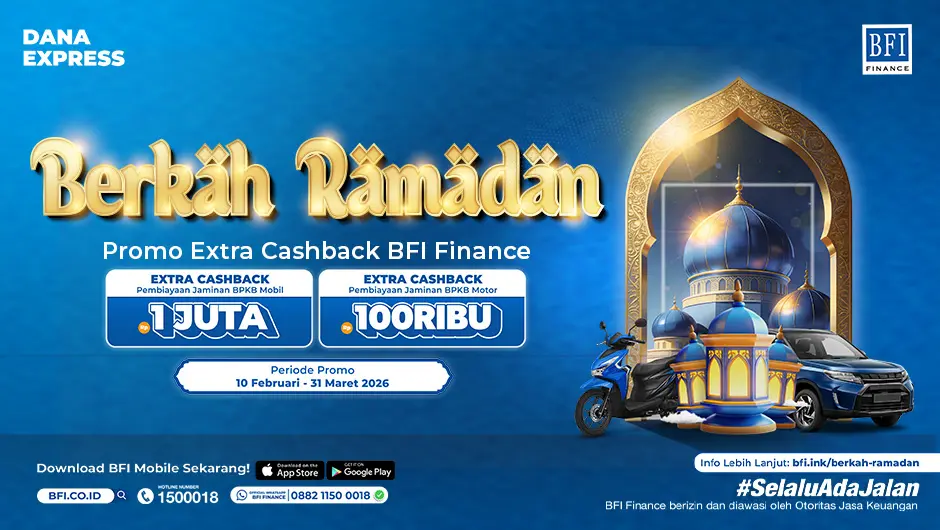The demand for Sharia-based financial services continues to grow, driving the development of various products from Islamic financial institutions. Some examples include Sharia vehicle financing, Sharia home financing, and Sharia multipurpose financing.
Among these options, Sharia multipurpose financing is one of the most popular products. Through this product, customers can use it for various needs, such as business capital or home renovation.
However, before applying for financing, there are several important things to consider to ensure the process runs smoothly. Let’s dive into the details below!
What is Sharia Multipurpose Financing?
Sharia multipurpose financing is a type of financing provided by financial institutions while adhering to the principles of Islamic Sharia. Unlike conventional loans, Sharia financing generally uses Sharia contracts (akad), ensuring that transactions are carried out based on Islamic principles.
Sharia multipurpose financing is usually provided for various customer needs, whether productive (business capital, business development, etc.) or consumptive (education expenses, home renovation, etc.).
The foundation of Sharia financing is based on Sharia contracts or Sharia compliance statements issued by the National Sharia Council of the Indonesian Ulema Council (DSN-MUI).
Key Considerations Before Applying for Sharia Financing
Interested in applying for Sharia financing? Here are some important points to keep in mind before applying:
1. Understand Sharia Financing Products
The first step is to learn about the various Sharia financing products and how to apply for them. You can then choose the product that best suits your needs. Each financial institution usually offers specific products, such as Sharia Home Financing (KPR Syariah), Sharia Multipurpose Financing, Sharia Used Car Financing, and others.
2. Understand the Types of Contracts (Akad) Used
Before using a financing product, it’s essential to understand the different types of contracts that comply with Islamic principles. By doing so, you’ll know your rights, obligations, and how profits are shared.
3. Compare Fees and Terms Across Institutions
Before choosing a Sharia financial institution, do some research on administrative fees, margins, and profit-sharing terms. Select a Sharia financial institution that is safe, trustworthy, and licensed by the Financial Services Authority (OJK).
4. Align With Your Financial Goals and Principles
Make sure the financing aligns with your financial goals and principles. Choose financing that is truly necessary and offers productive value for the future. Avoid financing that is consumptive and not urgent.
Types of Sharia Contracts (Akad)
In the Islamic financial system, financing products are based on contracts (akad) that comply with Islamic law. A contract is an agreement between two parties that serves as the legal foundation of a transaction. Sharia multipurpose financing typically refers to the following contracts:
1. Mudharabah Contract
A partnership between the capital owner and the party who manages the funds for a business venture. The capital owner is usually called shahibul maal, malik, or the Sharia bank, while the fund manager is called amil, customer, or mudharib.
2. Murabahah Contract
The most commonly used contract in sale-and-purchase transactions in Indonesia. In murabahah, the buyer knows transparently the product’s price and the seller’s profit margin. Both parties must agree on the selling price, which can be paid upfront or in installments.
3. Al-Bai’ wa Al-Isti’jar Contract
A combination of two contracts: sale and purchase (Al-Bai’) and lease (Al-Ijarah). This is often used for financing high-value goods, such as property and vehicles. The financing company buys the goods first, leases them to the customer, and eventually transfers ownership through a sale contract after obligations are fulfilled.
4. Musyarakah Contract
A partnership agreement where two or more parties collaborate to run a business, each contributing assets, funds, or expertise. Profits are shared according to the agreed ratio established at the beginning.
5. Qardh Contract
A financing agreement in which the financial institution lends money to the customer, who must repay it within the agreed period. Qardh is essentially a social loan, so no margin or profit can be charged to the borrower.
6. Salam Contract
Commonly found in pre-order purchase financing. The buyer makes advance payment to the seller, who then delivers the goods according to the agreed conditions and timeframe.
7. Istishna Contract
Similar to salam, istishna is used when the buyer places an order and the seller manufactures or produces the goods based on agreed specifications.
8. Ijarah Contract
A leasing contract where the owner of an asset or service provider grants usage rights or benefits to the lessee in exchange for a fee (ujrah) for an agreed period.
That’s a detailed explanation of Sharia multipurpose financing, from its definition to the types of contracts used. By understanding its principles and mechanisms, you can choose financing that not only meets your needs but also aligns with Islamic values.
Today, many financial institutions offer Sharia financing products, including the Sharia Financing Unit (UUS) of BFI Finance.
Through Sharia Multipurpose Financing, you can apply for financing for various purposes, such as business capital, home renovation, or education expenses—with a quick application process and clear contracts (ijarah and murabahah).
BFI Finance is licensed and supervised by the Financial Services Authority (OJK), ensuring its credibility and security. So, rest assured because #JauhLebihTenang with BFI Finance Syariah to fulfill your various needs.







